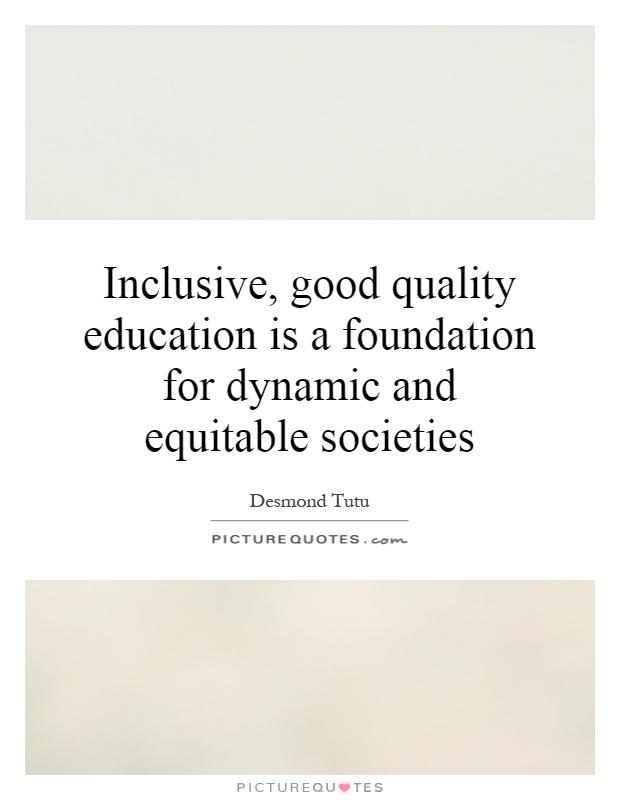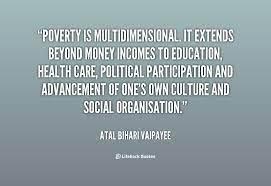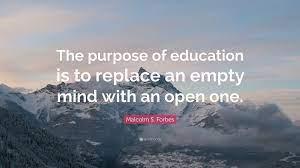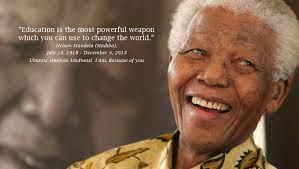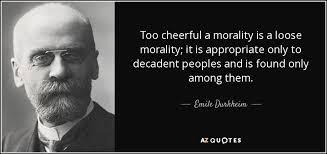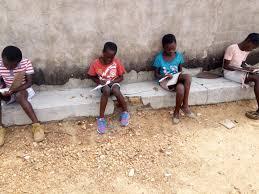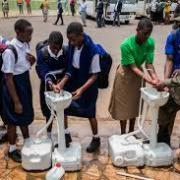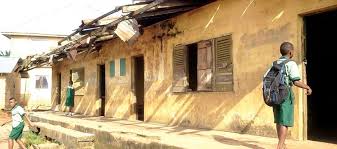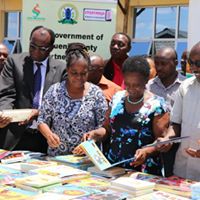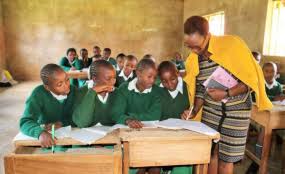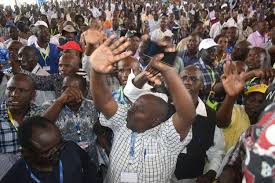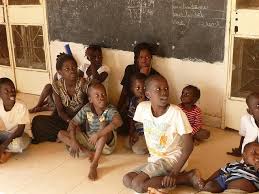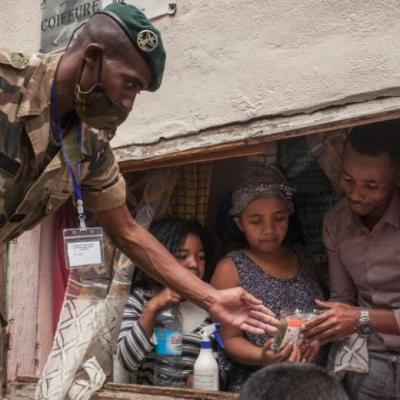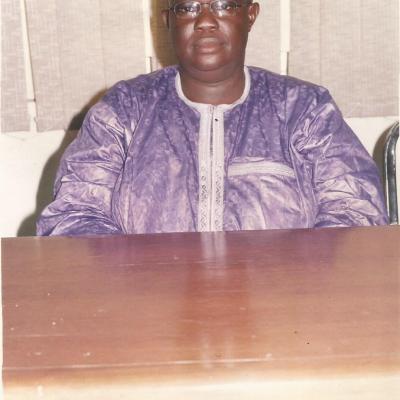Education
-
High Cost of Food-Kenyan Principals send SOS to Govt
- By solomon2day
- On 30/06/2022
- In News
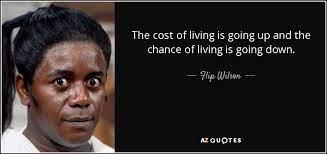 Principals in secondary schools in Kenya have sent a Save Our Soul appeal to the National Cereal and Produce Board (NCPB) as a result of the prohibitive cost of living in the country.
Principals in secondary schools in Kenya have sent a Save Our Soul appeal to the National Cereal and Produce Board (NCPB) as a result of the prohibitive cost of living in the country. Their SOS is contained in a letter to the Ministry of Education requesting that schools be supplied with enough grains at affordable prices. This disclosure was made by the Chairperson of the Kenya Secondary School Heads Association(KSSHA),Indimuli Kahi, during a news briefing.
Kahi stated that the intervention would go a long way to salvage the worrisome situation in the schools, saying,''As it stands, various learning institutions are unable to run effectively due to the cash constraints that have pushed their budgets beyond limits.''
Read-Helplessness in the Face of Dirt
-Legalizing Crime and Criminality
-Landlords and Tenants Associations, Crime and Criminality
-
Make School Environment Conducive to teaching and Learning-Prof. Olagoke to Govt
- By solomon2day
- On 31/05/2022
- In The People Talk
 Primary and Secondary schools have resumed for the third term and stakeholders in the education sector are expressing optimism that there shall be an improvement in the academic performances of pupils and students. In this interview the Founder, Spiritual Head, and Grand Imam of Shafaudeen-in-Islam Worldwide, Prof. Sabitu Olagoke advises the Government and teachers to be upright. Excerpts :
Primary and Secondary schools have resumed for the third term and stakeholders in the education sector are expressing optimism that there shall be an improvement in the academic performances of pupils and students. In this interview the Founder, Spiritual Head, and Grand Imam of Shafaudeen-in-Islam Worldwide, Prof. Sabitu Olagoke advises the Government and teachers to be upright. Excerpts :
What is your advice to the government and teachers as the third term gets underway nationwide?
The third term is a decisive segment of the session in the lives of the students and teachers in every educational institution across the federation.
This is the period when students are evaluated through different examination bodies-internal and external.
The success rate in this term is a measure of the work done by the teachers. Teachers must be up and doing to ensure that the results of the students are satisfactory.
The Government on its part must ensure that the term runs smoothly without any disruption.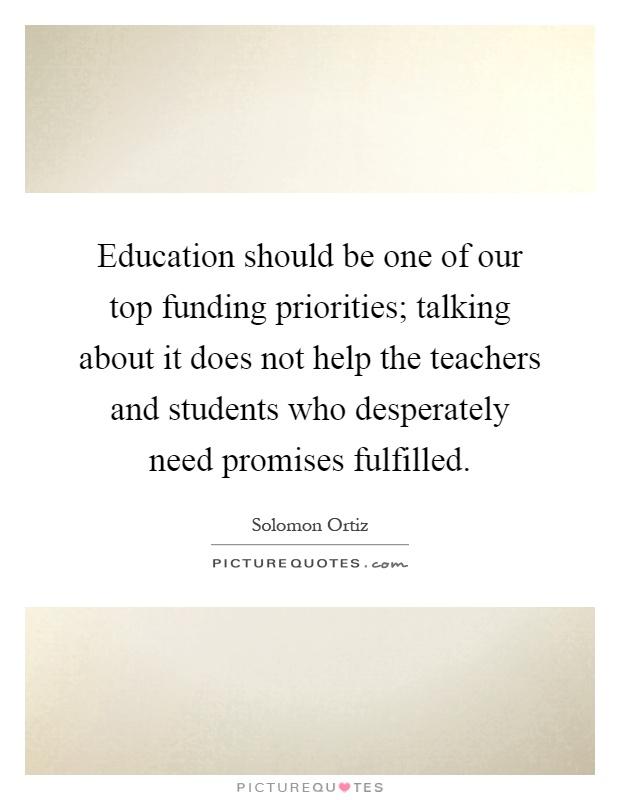
The Government is also expected to provide the necessary assistance needed by the schools in preparing and getting the students ready for their different external examinations.
The Government should also ensure the school environment is conducive to learning by providing good structures for the use of the students. The environment should also be enabling for teaching and learning.
Above all, discipline should be an integral part of any school administration to be able to check the excesses of the students and teachers.
Furthermore, the teachers need to be encouraged and appreciated as and when due to boost their morale.
The prompt payment of salaries and other related incentives.
It is very imperative for the government to adequately fund the education sector even beyond the stipulated benchmark of 26 per cent of the annual budget as obtains in countries such as Ghana and other progressive nations in the world. These countires have been able to achieve outstanding student performances to the level of the expected quality and standard.
The third term is underwayalready, students and teachers must be committed to the cause of very high sucess rates in theri various examinations through adequate preparations for it knowing fully well that the focus of all teachers and learners in the world today is on competitiveness in the global market. -
The Learning Process
- By solomon2day
- On 03/05/2022
- In Solomon's Column
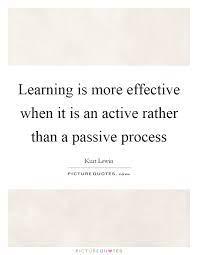 Education revolves around persons, society, things and ideas. It is majorly concerned with the individual in his or her social, physical and spiritual environment.
Education revolves around persons, society, things and ideas. It is majorly concerned with the individual in his or her social, physical and spiritual environment.
In teaching and learning, the above mentioned play significant roles in the molding of a person's character.Read-Helplessness in the Face of Dirt -Legalizing Crime and Criminality
The mindset of those who take up the responsibility of teaching goes a long way in shaping the education of learners.
In addition, the quality and direction of the work of those who are involved in teaching is hinged on their spiritual and moral environment.Sadly, nobody knows how the present crop of teachers were recruited into government service in a number of states.
It is not possible to brainwash the entire population. Perhaps.-Landlords and Tenants Associations, Crime and Criminality
Threats to kill and other uncouth words is now common among young and old Nigerians, who express this evil intentions in their native languages.-Law Enforcement: The Reactionary Approach
This is very strange, as ritual killings continue unabated in different parts of the country.
This development has to do with the mindset of the leadership, teachers and learners.
The suggestion is that those who ought to impart knowledge and those who ought to learn aspire to take up heinous, grievous and violent crimes as means to ends.-Government Workers-A Subject of Debate
-
The Worrisome State of Education
- By solomon2day
- On 28/02/2022
- In Solomon's Column
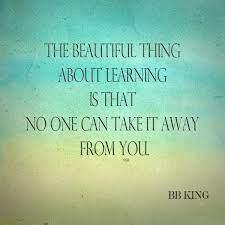 The impact by the Federal, State and Local Governments on the acceptable standards of education everywhere, is passive.
The impact by the Federal, State and Local Governments on the acceptable standards of education everywhere, is passive.Indeed, each school ought to have a life and character of its own and be in touch with the people of its immediate neighborhood.
Read-Legalizing Crime and Criminality
Sadly, the quality of teachers recruited to teach in schools has overtime reflected , negatively, in the attitude, behavior and mode of dressing of pupils and students. The role of parents and guardians also feature prominently.
The affected schools lack the necessary amenities and facilitates to aid learning, while most parents and guardians and political representaitives watch helplessly as their children and wards receive fractured education.
-Landlords and Tenants Associations, Crime and Criminality
Overcrowding, poor sanitation and the poor conditions of service of teachers which has resulted in the poor quality of teaching and poor quality of products are among the life threatening traits of these schools.
-Law Enforcement: The Reactionary Approach
The menace of secret cults, hard drugs and examination malpractices are now integral parts of the schools, while the government at all levels, which have all the while played significant roles in the worrisome situation, feign ignorance.
-Government Workers-A Subject of Debate
-
Introduce Foreign Languages Policy-Teachers to Uganda Govt
- By solomon2day
- On 06/01/2022
- In News

The Association of Teachers of French in Uganda has appealed to the Government to introduce a policy on foreign languages.
The association made this appeal in a petition to the Ministry of East African Community Affairs.
The petition lamented the sharp decline in the number of French candidates in different schools in the country while drawing attention to the lack of a clear foreign language policy, lack of sensitization about the importance of international languages, and negative subject choice policy at Advanced level classes continue to impact French negatively.
It also emphasized the need for teaching French with specific purposes for professional development just as it urged the government to reinforce the National Curriculum Development Centre-NCDC’s policy to enable compulsory integration and learning of French in secondary schools and universities.Read-Legalizing Crime and Criminality -Landlords and Tenants Associations, Crime and Criminality
-Law Enforcement: The Reactionary Approach -Government Workers-A Subject of Debate
-
The Standard of Learning
- By solomon2day
- On 24/11/2021
- In Solomon's Column
A moderate standard of learning must include the ability of a child to be able to spell ordinary words, correctly to write legibly and intelligently, to make out or check a common bill, to have sufficient geographical knowledge to know the position of the countries of the world and above all to be sufficiently acquainted with the Scriptures.
In every part of Nigeria today, most children leave school without attaining these standards.
The present system of education at all levels of government is not only bad for the children but also for the teachers. The teaching profession has been debased by the government and the devices of the teachers.
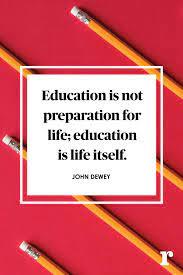
Parents have a major duty to their children, but most parents habitually neglect this major duty.
Untrained teachers and bad methods of teaching, projects by contractors that were not inspected with adequate motive, un-revised or ill-revised policies and the complete absence of all organizations of schools in relation to one another constitute an unspecified number of evils of public and private schools in Nigeria.
The allocations in the budgets of the Federal and State Government over the years to the education sector has had little or no impact on the sector.
Also read-Legalizing Crime and Criminality
-Landlords and Tenants Associations, Crime and Criminality
-
Education by Prof. Sabitu Olagoke
- By solomon2day
- On 08/10/2021
- In Special Report
 Without education, the whole world would have remained static in terms of civilization and development.
Without education, the whole world would have remained static in terms of civilization and development.
Unfortunately for human beings, we fail most of the time to act within the limits of the positive values for knowledge application. This is the reason for the destruction of what has been built over time.
Education, therefore, must be seen within the perspective of knowledge acquisition, wisdom for experience, and the power of a discerning mind to be able to be all-encompassing in taking the right decisions that would be accurate and precise at all times.
In the area of teaching education, the emphasis must be on the positive mindset to be able to bring out the best in the learners so that they would be positive change agents, on the issues of affecting or operating the system on the basis of justice and equity to meet up with the demands of human needs as an essential value of education if and only if we want peace, development alongside safety and security valves for the regulation and control at a sustainable level.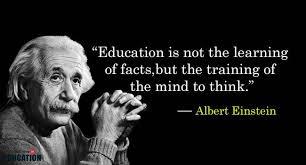
Education must be perceived as the process of facilitating learning or the acquisition of knowledge through skills on values, morals, beliefs, and habits.
Educational methods must include teaching, preaching, sermon, training, storytelling, discussion, critical thinking, problem-solving, and creativity, and directed research to manage today for a better tomorrow against all odds.
The educational domains must be explored to be able to achieve a functional education in the graduates.
Graduates must also possess the confidence, self-esteem, and positive mental attitude to be able to carry responsibilities independently to the point of engaging in the critical evaluation of issues to arrive at accurate decisions.
Furthermore, education must be adequately funded to achieve satisfactory results at all levels.
Above all, education is systematic development or training of the mind, capabilities, or character through a systematic instructional process. It is an essential tool to make every sub-system to be functional for the dynamics of the system.Also read-Legalizing Crime and Criminality
-Landlords and Tenants Associations, Crime and Criminality
-Law Enforcement: The Reactionary Approach
-Government Workers-A Subject of Debate
-
Give Your Children Quality Education-Rwanda First Lady
- By solomon2day
- On 17/06/2021
- In News
 The First Lady of Rwanda, The First Lady of Rwanda, Jeannette Kagame has called on parents and other stakeholders to ensure that their children obtain a quality education.
The First Lady of Rwanda, The First Lady of Rwanda, Jeannette Kagame has called on parents and other stakeholders to ensure that their children obtain a quality education.
Kagame made this call in a tweet, on Wednesday, June 16, a day set aside as the Day of the African Child.“This year, as Rwanda focuses on the role of the community in promoting ECD, we are calling on parents, partners, employers, and everyone to continue supporting these efforts geared towards ensuring every child’s access to quality education, care, health, and protection,” the First Lady stated.
-
COVID 19-Kenya set to Distribute 7.5 million masks to Schools
- By solomon2day
- On 09/02/2021
- In News
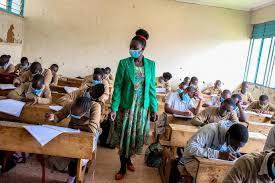 The Ministry of Health in Kenya has earmarked 7.5 million masks for distribution to schools and those in the informal settlements.
The Ministry of Health in Kenya has earmarked 7.5 million masks for distribution to schools and those in the informal settlements.The distribution shall be done through the Ministry of Education.
According to the Education Cabinet Secretary George Magoha who made this disclosure, priority would be given to schools with a higher enrollment rate, those in informal settlements, special schools, and schools located in pockets of poverty.
Magoha also disclosed that pupils in Grade 4 to Grade 8 and secondary students will receive 2.25 million masks.
“The distribution will be cascaded to the regional and county levels. We have tasked the field officers to utilize the outlined criteria to select schools to benefit from the masks, which will be distributed as we receive them from the Ministry of Health,” the cabinet secretary stated. -
Nigerian Children's Place in a Sane Society
- By solomon2day
- On 04/01/2021
- In Solomon's Column

 Most public primary and secondary school students learn in environments that are not encouraging in Nigeria.
Most public primary and secondary school students learn in environments that are not encouraging in Nigeria.
The facilities have been stretched to obsolete conditions as a result of improper planning by the government at all levels.
Considering the dilapidated toilet facilities in several of these schools and the absence of potable and drinkable water, the potential outbreak of an epidemic cannot be rule out.
Teachers are no longer dedicated to duty due to their nightmarish working conditions.
Cultism has taken root in most of these schools, while ''armed robbers'' in school uniforms dot the nooks and crannies of every par of the country.
Of worry, is the lack of sincerity on the part of the government in the implementation of programs and policies.
On the part of the private schools, moral decadence, which is a major feature in the public schools, the issue, while examination malpractices and fraud are also noticeable signposts.
Furthermore, the attitude of the government and people in a number of states in the country downplays the reality of the coronavirus pandemic, while the present state of several schools in these states, the non-availability of potable water, and the dilapidated facilities could expose students and teachers alike to serious health hazards, the coronavirus pandemic inclusive.
Or worry also is the fact that several communities in Nigeria are under siege by various categories of criminals. The sight of young boys, in the midst of adults, smoking Indian hemp is now commonplace, majorly at primary schools without perimeter fencing.
In addition young girls, have now taken to prostitution on the promptings of their mothers and guardians to make ends meet. A visit to several beer parlors, ''Ogogoro'' joins scattered all over the country shall be instructive. Such include communities Molusi, Solanke, Oyegbami, Oshodi, Olorunsogo, Alko/Barracks, Felele, Scout Camp, and others in Ibadan Oyo state.
If an urgent step is not taken to salvage the almost hopeless situation, millions of Nigerian children may no longer have a place in a sane society. -
Exemplary Lifestyles : An Antidote to Indiscipline
- By solomon2day
- On 06/07/2020
- In The People Talk
 The issue of education cuts across the home and the school, while the products still remain as raw materials for the houses of God to process into refined elements thoroughly reformed and guided by knowledge, wisdom and the power of discerning mind, if and only if due process is taken into an environment of love, morality and discipline.
The issue of education cuts across the home and the school, while the products still remain as raw materials for the houses of God to process into refined elements thoroughly reformed and guided by knowledge, wisdom and the power of discerning mind, if and only if due process is taken into an environment of love, morality and discipline.Graduates of these institutions are expected to feed the society through services in their various specializations, guided by ethics of practices for the right value orientation to be employed in achieving the much desired value, quality and standard expected to be in line with global best practices.
Almost all the nations of the world, Nigeria in particular, have failed in this respect because of the breakdown of the agents of socialization in the hostile environment of poverty, Timocracy and kleptocracy.
The underling factors for the restoration of values is to work on the attitudinal challenges emanating from the breakdown of the core values in all spheres of life, as there are no longer role models for the youths to emulate in the present ugly environment of rhetoric.
What is correct is obvious, but who to correct it, is now the question on every lip. However, for humanity not to go into extinction through ravaging pandemic diseases such as the coronavirus, borne out of human frivolities and waywardness, there is a need to restrategize on the way we impact on the society, the teaching and learning value in the schools and the home through the curriculum that must be practically touched with role modelling illustrations and demonstrations for correct learning that will perfect the ways of the people and the change into fortune the destiny of the society.
In this respect, everybody is a stakeholder just as religion is all encompassing with universal applications to regulate and control moderately the affairs of the people with overall advantages of the spiritual energy to articulate human social activities into full realization and actualization, there is a need to return to God through the chosen faith based houses of God for unseasoned divine intervention to nurture to fruition human efforts for development.
References to the scriptures that must be implemented without seizing the advantages of the people’s areas of weaknesses and needs will ever solve our attitudinal challenges on institutional discipline, moral decadence and frictions for corruption against peace and development.
Prov. 25 : 28 ‘’ A person that can’t control himself(discipline) is like a city without walls to protect it.’’
From the sayings of Prophet Mohammed this submission is confirmed to be true, ‘’ the best of Jihad is that of self-discipline.’’
Suffice now to say that parents, teachers and school heads who are leaders in other areas of functions that are direct to the people and the society, must see themselves as primary stakeholders who must not only teach the creed, but role model the ideals for people to be able to follow without restrictions or any reservations.
However, the following values must be used as weapons of instructions by the parents and the society and various places of work to benefit because after all, the products of the home are the working class as well as leaders for governance.
The Holy Quaran 31 : 17 refers, :
- The establishment of regular prayers as must be demonstrated by parents who must teach and monitor their children on its importance to be close to their creator and to develop the culture of the fear of God and due process in doing things.
- Parents must demonstrate the exemplary lifestyle to be able to admonish their children on the essence of been just with all sincerity of purpose in any place they may find themselves.
- Much as we realize that we live in a filthy environment fraught with corruption, transgressions, sins and crimes, parents must not be found wanting or be soaked in the mess, but rather live exemplary lifestyles worthy of emulation by children and others to be able to effect a paradigm shift.
- Patience and forbearance in goal getting is highly important for elderly ones to demonstrate and live by, for the younger ones to have a positive mindset of correcting bad situations.
The society must be able to see this as a culture of child rearing through a counseling strategy that will nurture the nature of the children right from the impressionable age through the adolescent stage to the period of adulthood with all consistency. This will in every way restore us into a state of discipline and value laden exemplary lifestyles free of fraud, but justice based.
Prof. Sabitu Olagoke
Founder, Spiritual Head and Grand Imam Shafaudeen-in-Islam Worldwide,Wakajaiye, Ibadan, Nigeria
-
Guidelines should be in place before schools resumption in Zimbabwe-Human Rights Commission
- By solomon2day
- On 12/06/2020
- In News
The Zimbabwe Human Rights Commission (ZHRC) has advised Government to put in place guidelines for the reopening of schools in the country.
The ZHRC made this know in statement."Government should issue out a form of certification for compliance with the set Covid-19 precautionary guidelines to schools that would have met the set standards for them to open.
"Measures must be set out on how those (schools) that would have failed to meet the certification standards will be assisted for them to re-open together with others in line with the principles of non-discrimination and equality," said ZHRC.
The Zimbabwe Government had before now announced that all schools will be reopen on July 28 after four months closure due to the Coronavirus pandemic outbreak.
-
Train Young Liberians Rather than Hiring Foreigners-Liberia's first female Maritime Educator to Government
- By solomon2day
- On 20/01/2020
- In News
 Liberia's first female Maritime Educator, Mrs. Miatta Sonie Sherif has advised the Government to invest in training young Liberians rather than engaging the services of expartriates in the maritime industry.
Liberia's first female Maritime Educator, Mrs. Miatta Sonie Sherif has advised the Government to invest in training young Liberians rather than engaging the services of expartriates in the maritime industry."It is now hard times that policymakers see the need to invest in building the capacity of Liberians especially the young ones to take charge of Liberia’s maritime resources given the fact that the few professionals in the sector are aging. Giving our Maritime sector to foreigners to manage is a risk we don't want to toy with," Mrs. Sherif emphasized.
She obtained a Master’s of Science degree in Maritime Education and Training in 2019 from the World Maritime University in Sweden to become the first Liberian woman to achieve such feat.
As part of requirements to acquire the degree, Mrs. Sherif presented a dissertation on the topic: “The development of Maritime Education and Training in Liberia: a historical perspective”. -
10.33 Trillion Naira 2020 Budget-48 Billion Naira is a token for Nigeria’s Education sector-Prof Olagoke
- By solomon2day
- On 06/01/2020
- In The People Talk
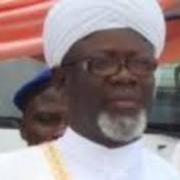 A meager N48billion has been allocated to the Education sector out of the over N10 Trillion 2020 National budget of the Federal Republic of Nigeria. This allocation is without consideration to the falling standard of education, bad state of infrastructure and the shortage of manpower.
A meager N48billion has been allocated to the Education sector out of the over N10 Trillion 2020 National budget of the Federal Republic of Nigeria. This allocation is without consideration to the falling standard of education, bad state of infrastructure and the shortage of manpower.It is however surprising that the National Assembly will recieve N37 Billion for renovation of its entire complex.
In this interview with People, the Founder, Spiritual Head and Grand Imam of Shafaudeen-in-Islam Worldwide, Prof. Sabitu Olagoke insists that the allocation to the education is insignificant considering the 10.33 Trillion budget esitmate. Excerpts :
Do you think that N48 Billion shall be able cater for the myriad of challenges confronting the education sector in Nigeria ?
It is highly embarrassing to discover that Nigerians are not dreaming, but are faced with the stark reality of the times, when the paltry allocation to the education sector out of N10.33 Trillion budgeted for the nation is only N48 Billion and the Legislators in the National Assembly in their wisdom recommended a huge sum of N37 Billion for the renovation of the National Assembly complex, as if to say that there is so much money in the country and that education is inconsequential to the development of the children and youth and the development of the nation at large. The question that would follow is what is the rational behind the decision of the Legislature and the Executive on the allocation to this all important sector? This is at variance with the United Nations affirmation of 26 per cent benchmark allocation of any country’s budget to education.
The N37 Billion allocated for the renovation of the National Assembly complex at this critcal period of the country’s economy, when one quarter of the budget has been set aside for debt management, does not seem to be reasonable and it has portrayed both arms of government as irrational in their decision.
N37 Billion with good economic action plan could have generated more job opportunities or standardization and establishment of more medical centers across the nation for better health care delivery, but this may not give room for self enrichment or direct filling of our leaders’ purses through the network of Serve Self First, Before I finally serve you concept which all Nigerians hypocritically condemn.
Presently, the general atmosphere is not conducive for learning, cases of pupils and students sitting on the bare floor is rampant.
Secondly, most schools do not have toilet facilities. What is the Federal, State and Local governments doing about this ?
Thirdly, there is the issue of out of school children that is yet to be resolved. Most schools lack infrastructure, furniture and strucutures, this is in additon to the shortage of qualified Teachers.
Furthermore laboratories, workshops and accompanying materials are inadequate in most of the schools.
There is also the factor of capacity building through training and retraining.
With due consideration to the above mentioned would the N48 Billion be able to cater for all these needs in all the educational institutions owned by the Federal Government ? What about those in the 36 states ?
A general assessment of the breakdown of the budget shows that most of the contents reflect areas where the politicians would be able to make gains, at the detriment of the peoples’ welfare.
The budget is supposd to be people friendly to the extent that it would result in self fulfillment by the citizens.
The nation itself is now an object of ridicule among the comity of nations. Who will rescue Nigeria from its ‘’captors” ?
-
37 Primary Schools in Kenya get Libraries and Books to Boost Reading Culture
- By solomon2day
- On 05/10/2019
- In News
 Makueni County Government in Kenya in partnership with Shina Foundation and Story Moja Publishers are set to establish libraries in 37 Primary schools in the county.This disclosure was made by the the First Lady of the county, Mrs. Nazi Kivutha.
Makueni County Government in Kenya in partnership with Shina Foundation and Story Moja Publishers are set to establish libraries in 37 Primary schools in the county.This disclosure was made by the the First Lady of the county, Mrs. Nazi Kivutha.''37 primary schools in Makueni will each acquire one thousand books courtesy of Shina Foundation, county government of Makueni and Story Moja publishers in phase 2 of “start a library initiative. In 2016, the county government in partnership with Shina Foundation started 30 libraries in primary schools, one in every ward.
''The “start a library initiative’’ is a reading promotion program that enhances access to story books for children and seeks to root a deep reading culture in schools.
School libraries have proved useful in enhancing learner’s literacy, improving interest in reading for pleasure as well as for examinations.
I grew passion for the books initiative out of my soft spot for children. Consequently, I decided to spearhead the library program, as one of my programs through the foundation
Reading improves the language and exposes the children. Therefore, it’s prudent for every one of us here to go back to the primary school that they attended and donate a book or begin a library.
As we flag off the over 40,000 books to schools, I urge teachers to encourage pupils to develop a reading culture by using them. Books that are not read remain to be just papers'', the First lady stated.
Mrs Kivutha maintained that the program was an avenue to alleviate illiteracy in the county, adding “We have already trained our gatekeepers for two days and we hope for the best when the real job starts''.
-
Over 300, 000 trained Teachers Jobless in Kenya
- By solomon2day
- On 03/07/2019
- In Special Report
Over 300,00 trained and registered Teachers in Kenya are without jobs.
According to well informed sources in the Education Ministry, schools in the country are short of 96, 00 Teachers, with with primary schools having about 10 million pupils being short of 38,054 tutors and Secondary schools, with about 2.8 million students, have vacancies for 58,291 teachers.
Following Government aggressive campaigns to achieve 100 per cent transition from primary school, there has been a high enrollment rate coupled with the fact that 9,472 women and 6,950 men applied for government teaching positions but were not employed.
6,872 of the applicants posses Bachelor of Education while 1,596 had diplomas. Certificate holders seeking jobs in primary and pre-school schools accounted for 5,686. -
Govt Must Correct All the Lapses in Education to Move Forward-Prof. Olagoke
- By solomon2day
- On 27/06/2019
- In The People Talk
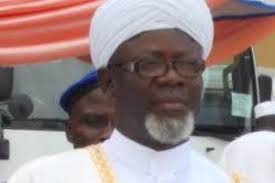 The standard of Primary, Secondary and Tertiary education in Nigeria is a source of worry for all Nigerians irrespective of Tribe, Religious persuasion and social background.
The standard of Primary, Secondary and Tertiary education in Nigeria is a source of worry for all Nigerians irrespective of Tribe, Religious persuasion and social background.However, the unattractive annual budget allocation to the education sector has continually manifested in the troubled learning environment, shortage of qualified Teachers and teaching aids, poor salaries and absence of incentives for those who impart knowledge.
Nigerians insist that the public higher institutions of learning in the country are yet to meet the purposes for which the institutions were established, even as they argue that the private ones are exploitative and fall short of acceptable international standards.
Sadly several fraudsters have exploited the situation, in connivance with a sizable number of supposed qualified Teachers, to defraud Parents and Guardians of their hard earned money ? in the guise of overseas admissions.
In this interview with, the Founder, Spiritual Head and Grand Imam of Shafaudeen-in-Islam Worldwide, Prof. Sabitu Olagoke opines that Policy makers in government have to co-opt those with the technical know how to move the country forward. Excerpts :
What are your views on higher education in Nigeria, considering the falling standards ?
The Nigerian educational system started to have problems as a result of several retrogressive factors confronting its management, but with neglect and misplacement of priorities from all stakeholders, most especially on the side of government-which is supposed to set and enforce standards and quality in an environment of discipline. For example, federal character aims at ensuring uniformity of purpose and equity. But it has ended up in collapsing the ethics, as reflected in the admission standards, which have discriminatory minimum scores for admission across the six Geo-Political zones.
Unfortunately, this does not reflect in the quality of grades of those affected, but paradoxically in the quality of the products and their performance ratings.
This is the major concern of the South West that is struggling to go back to the virtuous era of discipline, quality, standards, graduate reliability and employ-ability that could be compared to the modern day acclaimed global competitiveness, through best practices.
Today, we are having 170 universities that are yet to make the first 200 best universities in the global rating.
This is purely due to under funding of education in Nigeria, most especially in the areas of Teachers’ standard upgrade, lecturers’ capacity building need and facility update challenge to meet up with the global trend of development in the world of Science and Technology, through the ever dynamic world of Information Technology(ICT).
Instead of government complying with the UNESCO’s benchmark of 26 per cent of the national budget allocation, Nigeria’s funding pattern of education is yet to attain 10 per cent.
Tertiary Education Trust Fund(TETFUND)has achieved in the areas of structure, but not totally in the area of facility.
The struggle to ensure that all tertiary institution Teachers have first, second and third degrees, is appreciable, but only fractional and unfortunately, the interest of having Doctor of Philosophy, is not for research and development purpose, but for accelerated career progression in the world of academics.
Worse still, our Professors in various fields of human endeavor are yet to be fully engaged in the scheme of aggressive nation building because of the murky waters of our partisanship driven political hostile environment, where expert views are supposed to be sought, but politicians use money to make a wrong choice. This has resulted in the re occurrence of problems in a more dangerous way.
Government’s inability to fund Polytechnic education, as appropriate, makes it a challenge.
Higher National Diploma (HND) programs are still limited by the National Diploma status of the institutions in question.
Today, most Polytechnics are mere surrogates of Universities.
Unfortunately, university education is more in favor of the cognitive domain that is more of research.
Polytechnic education, with adequate facilities, are expected to compete favorably with what obtains in the industries, which can transform, when harnessed, university theories into physical dynamic machinery of operation, that favors the Psycho-motor domain of education.
All institutions are supposed to work in tandem, with correlative synergy` to promote the country’s industrialization.
Nigeria’s costly neglect of the Technical Colleges, has made us to lose out in the areas of vocational and entrepreneurial evolution that would have formed the very practical bases for industrialization, but for the stigmatization effect.
Parents and children are running away from patronizing this aspect of Engineering appreciation, which the Canadian government has proved to the whole world that their products are crucial, with recruitment in mind, in the establishment of cottage industries for the Small and Medium scale Enterprises(SME).
90 to 98 per cent of this sector are responsible for the industrialization of China, Hong Kong, Russia and the United States of America.
The policy makers need to look inward, by contacting the relevant experts, both from the Polytechnic and University sectors to resolves this matter.
-
First Female Students Chairperson Elected in University of Nairobi
- By solomon2day
- On 13/04/2019
- In News
A 300 level law undergraduate has become the first female chairperson of the University of Nairobi Students Association.
Ms Ann Mwangi emerged after polling 24 votes to beat her challengers, Samuel Ayoma whoe scored eight votes Ertiman Oile scored 4 votes .
The process was facilitated through the electoral college and was presided over by Prof. Mohamed Jamaa.
Ms Mwangi will take over from Mr Antony Manyara who has been the chairman of the association since 2018.
The election is the second after the signing into law of the Universities Amendment Act in 2016 by President Uhuru Kenyatta.The Act states that the students association is to be governed by a student council comprising a chairperson and a vice chairperson who must be of the opposite gender, a treasurer, a secretary-general, and three other members to represent special interests of students.
Those elected in leadership positions must reflect national diversity and the council cannot have more than two-thirds of its members being of the same gender.
-
Book Piracy is on the Increase in Nigeria-NPA
- By solomon2day
- On 10/04/2019
- In Special Report
 The Nigerian Publishers Association(NPA) has raised the alarm over the unabating activities of book pirates in Nigeria.
The Nigerian Publishers Association(NPA) has raised the alarm over the unabating activities of book pirates in Nigeria.The NPA made its position known through its Executive Secretary,Mr. Emmanuel Abimbola.
‘’Book piracy is a major problem in Nigeria. Piracy is on the increase, these pirates print abroad and the quality of their work is alarming. We as an association are working with the Nigeria Copyright Commission, to reduce it to the barest minimum. These pirates are not our members, they come from outside. We embark on anti-piracy campaigns to alert the public on the activities of book pirates’’, Mr. Abimbola dislcosed.
-
Nigerians and Their Quest for Affordable Education
- By solomon2day
- On 18/03/2019
- In Solomon's Column
Vital literacy indicators reveal a deplorable condition in the Nigerian educational system.
Indeed, adult literacy rate is embarrassing, while the number of out-of-school children has reached an all time high rate.
Trailing the fallen standard of education at all levels, is the ever increasing rate of drop-outs today.
With particular reference to the Secondary and Tertiary levels of education, cultism, gangster ism and prostitution have become the popular choice for undergraduates and students in educational institutions across the states of the federation.
Shortage of qualified teachers, lack of teaching aids,recreational facilities in schools and basic infrastructure are just a few among the sore points of schools in Nigeria.
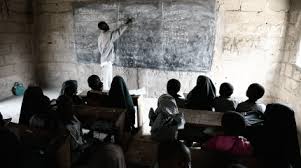
Of serious worry are the poor sanitation, overcrowding in class rooms, poor conditions of service for teachers, which has resulted in the poor quality of teaching and poor quality of products, all put together, have become negative signposts of the school environment.
Sadly, poor educational management, a reflection of the poor inter-sectoral allocation, multiplicity of agencies with duplicated functions and inadequate coordination, have all made education administration in most states questionable and fraudulent.
The weak support for education by government at all levels, is a manifestation of the ineptitude of government officials.
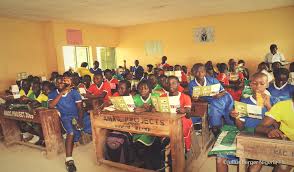 Government’s deliberate neglect in the management of the education sector may eventually result in the total collapse of the public education system.
Government’s deliberate neglect in the management of the education sector may eventually result in the total collapse of the public education system.The shortcomings of government has heightened the stakes for private investors and made the education sector very lucrative.
With the profit motive as the major emphasis and driving force, educational institutions are now germinating like pure water factories in very nook and cranny of Nigeria, while at the same time, such institutions are turning out educationally unacceptable products.
With all these in mind, Nigerians are urgently asking :
- Can government at all levels make education available, relevant, accessible and affordable to all Nigerians ?
- Can government at all levels ensure immediate and long term social and economic returns from education ?
- Are public educational institutions, considering their present state, competent to produce skilled manpower ?
Answers to these questions are in the public domain for everyone to draw conclusions.



